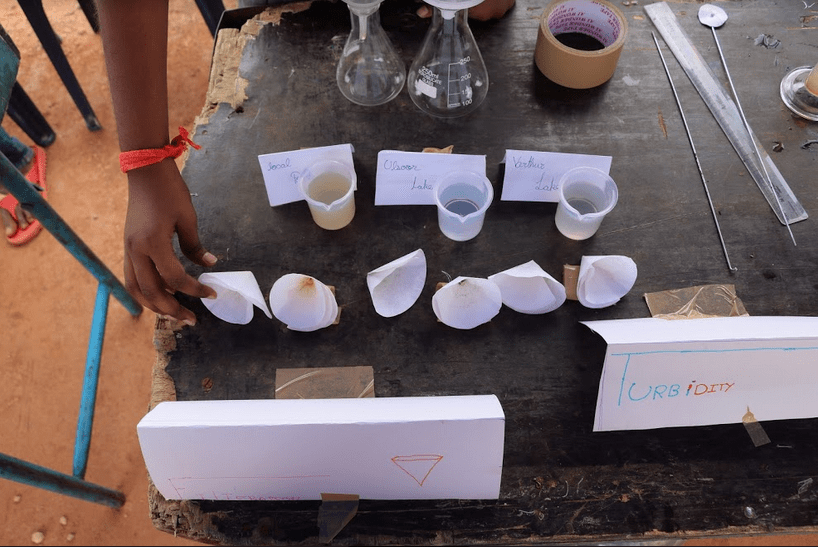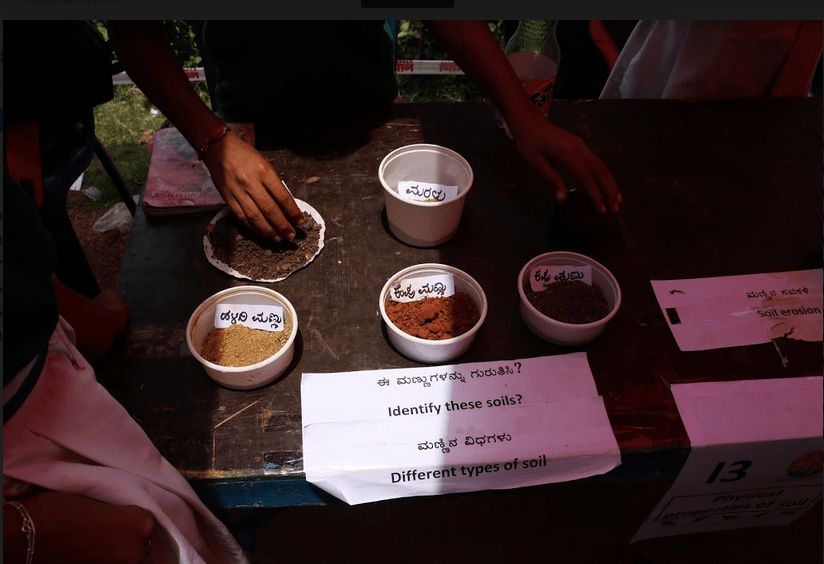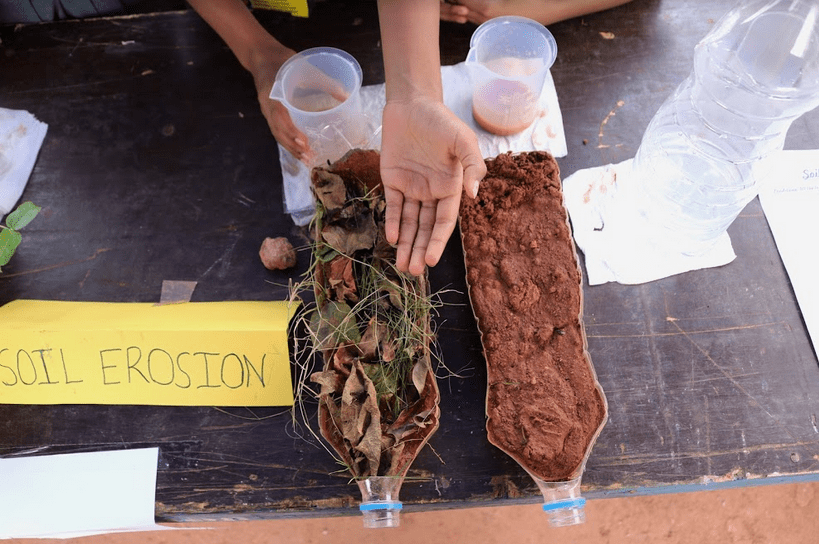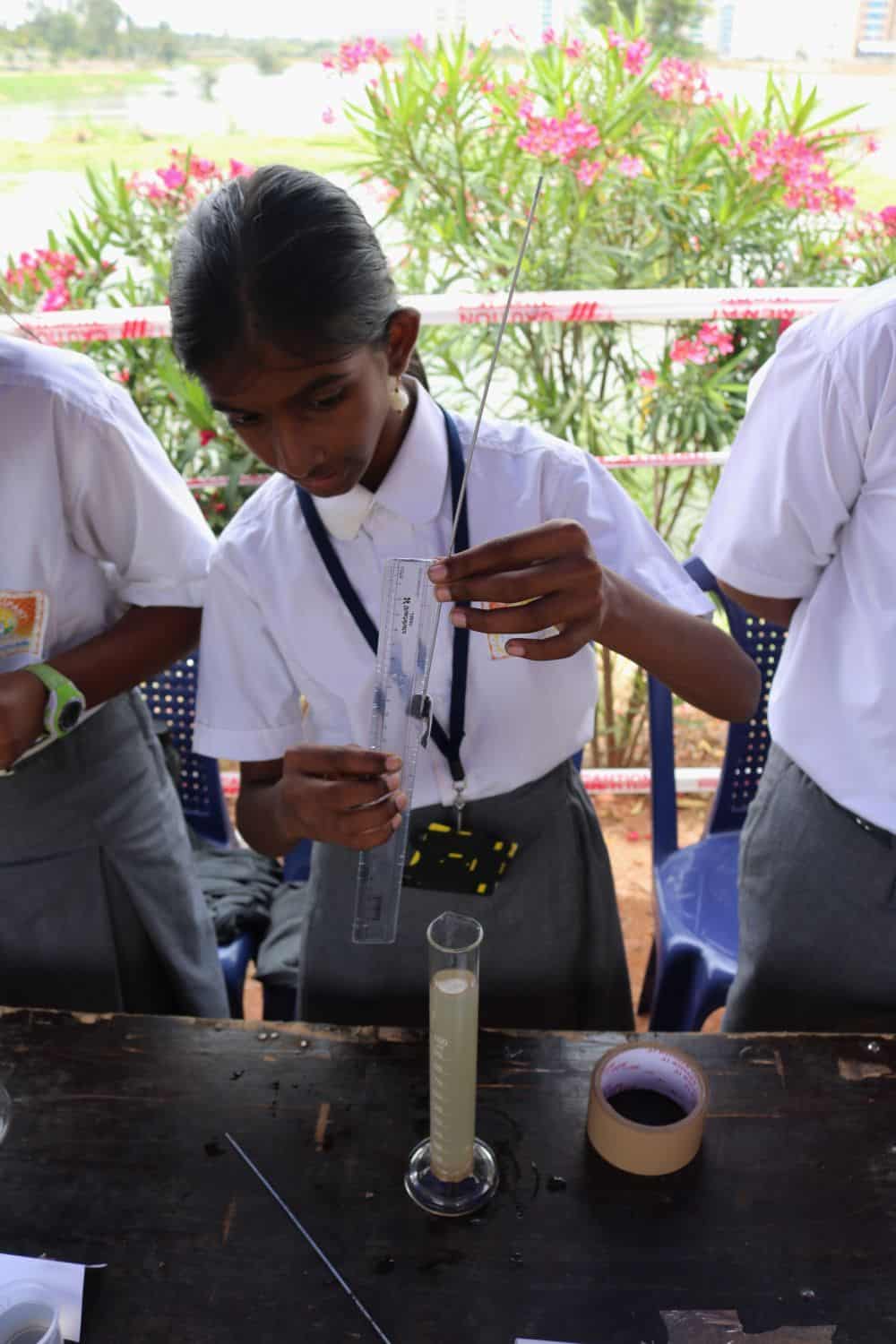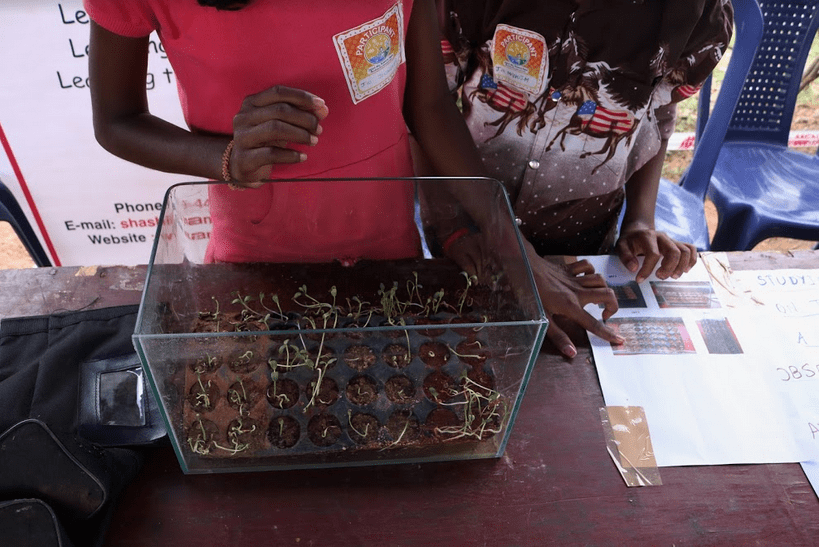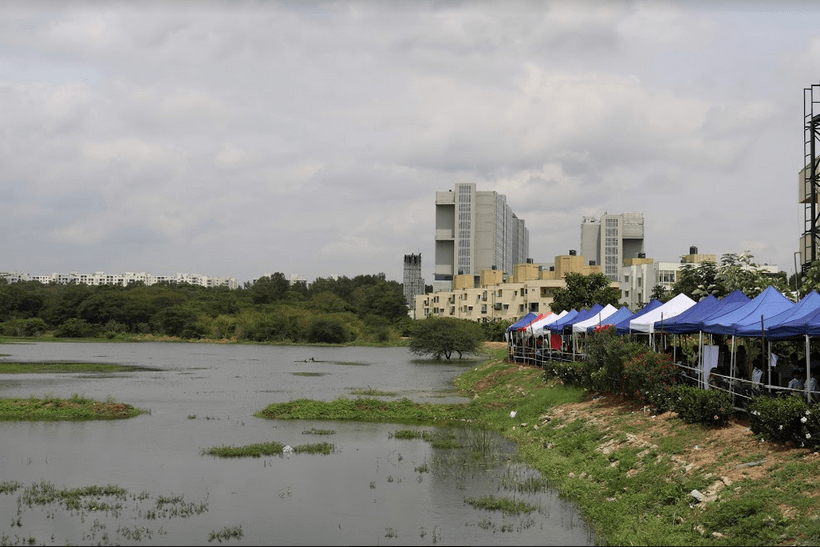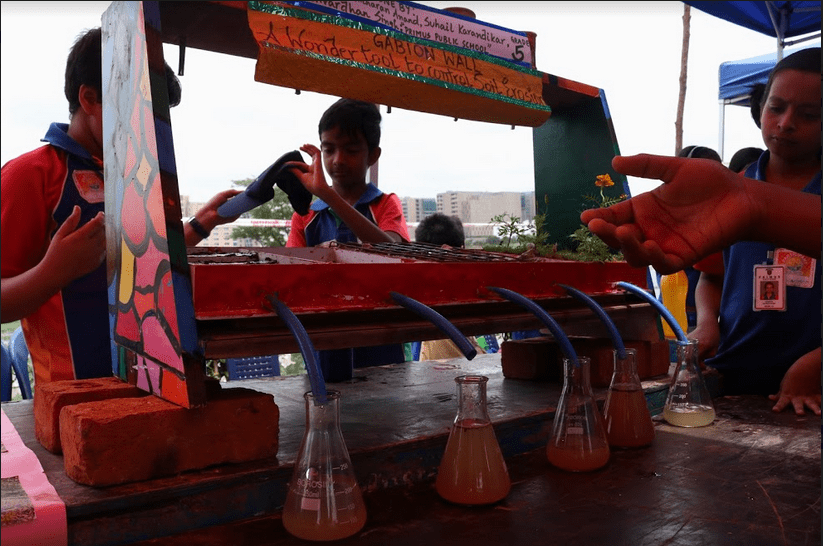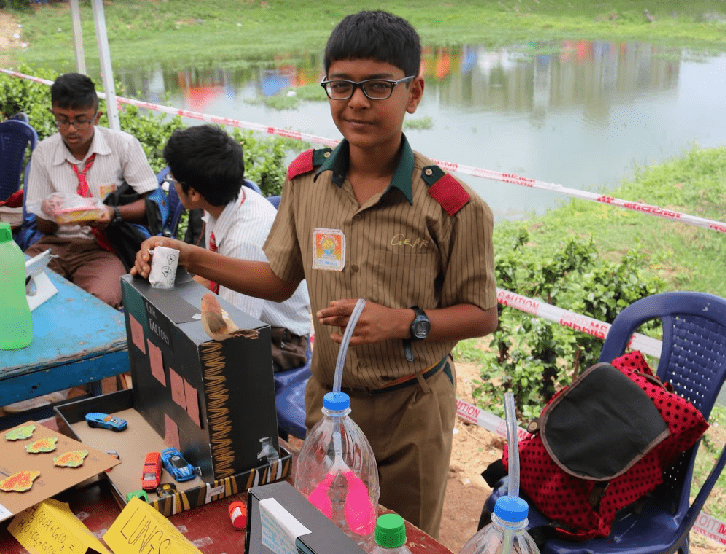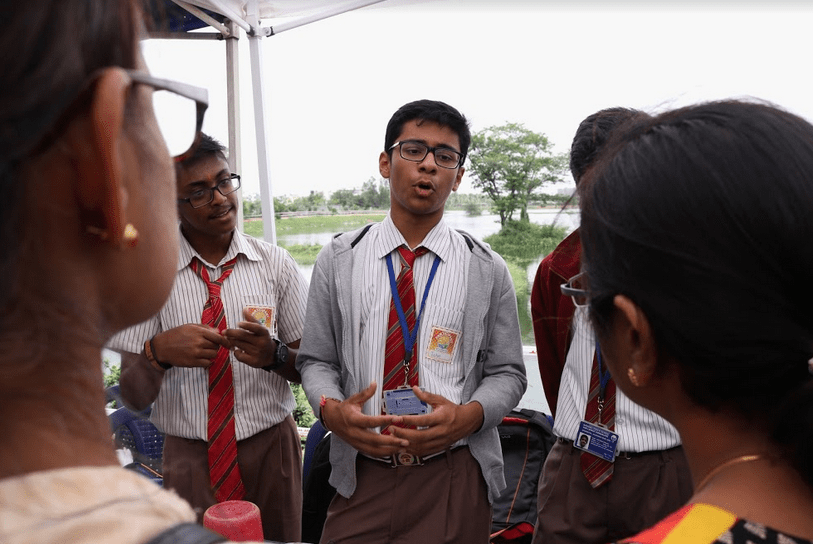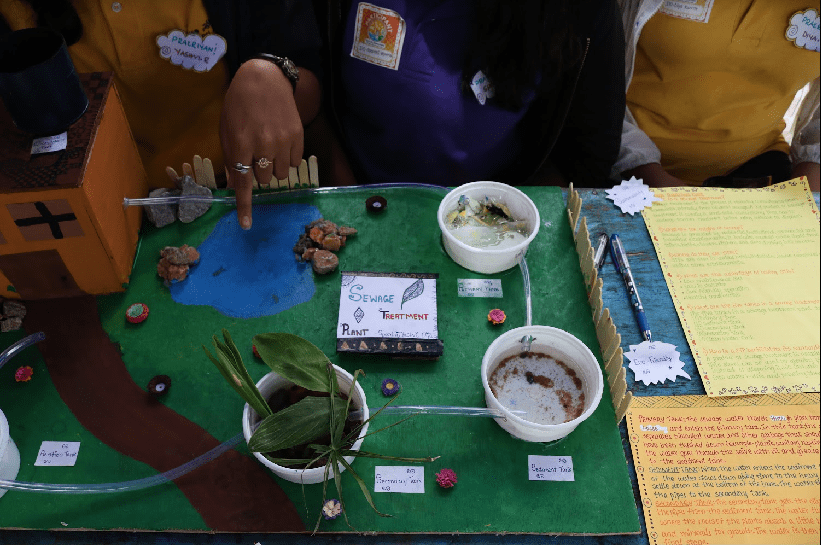Shivany Dowlat, a 7th grader at GEAR Innovation International School, concluded the presentation of her project on miscible and immiscible liquids with a trick question.
“Do you keep our lakes clean?”
If the answer was yes, she would quickly point to the lake directly behind her, Soul Kere off Sarjapur Road, and rebut. Soul Kere looks cleaner than many of Bengaluru’s lakes, but it still had small trails of trash visible from where Dowlat was standing.

Pic: Kate Clark
“Look at the plastic,” she said. “People come in and throw it, why? There’s a dustbin right there… You don’t keep it clean, but you have to try. We have to educate people, we have to stop.”
“Prevention is better than curing,” she added.
The inaugural Soul Kere Science Faire on September 3, 2016, brought together students from 20 schools in the area, grades 1 to 12. Students presented their projects, as well as conducted live experiments throughout the day.
Rekha Raghunathan, a volunteer and organiser of the event, said the purpose of having Soul Kere as the backdrop was to introduce the kids to the lake and to educate them on the importance of protecting public spaces.
“Unless children have an understanding of these spaces and what it means to have these spaces they aren’t going to survive,” Raghunathan said. “It’s a better way of introducing to them to the space than saying ‘come let’s do a bird walk.’”
Click on the slideshow for more pictures.
$(document).ready(function(){ $(‘.carousel .carousel-inner .item’).first().attr(‘class’, ‘active item’);});
Among the experiments were a model of a hydroelectric generator, an eco-friendly air-cooler, a mosquito trapper, a vehicle-mounted wind turbine, a wastewater treatment model and a project titled “farming through the internet.”
Bhargav Kulkarni, a 10th grader at Freedom International School, built a soil moisture sensor with a connected Wi-Fi chip. The sensor collects data in the form of volts and converts the volts to percentages, which are then sent to the Internet via the Wi-Fi chip.
An agriculturalist can then analyse the data and tell the farmer how best to treat their soil.
“Even if they want to analyse their soil they will have to go to a far off agricultural center; that may not be feasible,” Kulkarni explained of his project.
The winning schools were the Foundation School, Freedom International, Vibgyor High, Harlur and NPS HSR.
Judges included Harini Nagendra, ecologist and professor of sustainability at Azim Premji University, Lakshmi Saripalli, astrophysicist at Raman Research Institute, K V Gururaja, scientist at Gubbi Labs and at Centre for Infrastructure, Helen Kennedy, head of the Department of Environmental Sciences at Mount Carmel College and Surendra Kulkarni, research director and Site Head for SABIC Technology Center.
Related Articles
Science train chugs into Bangalore
Science Show at Puttenahalli Lake
Science for the people
The Raman Effect on Indian Institute of Science
